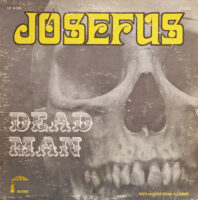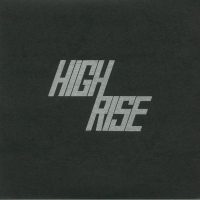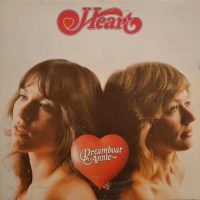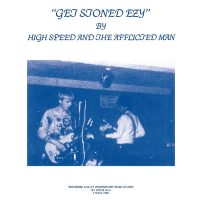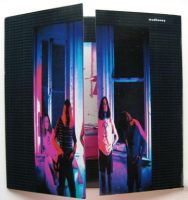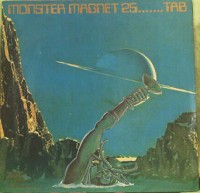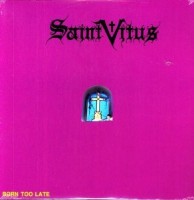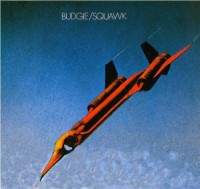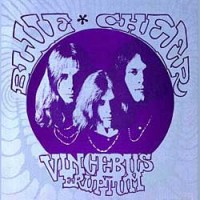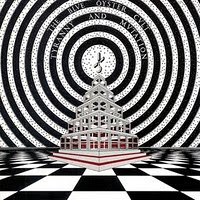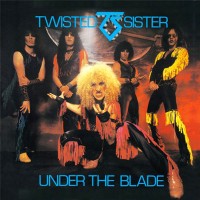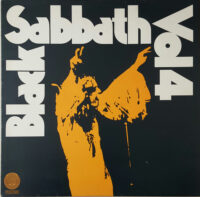
Recorded in LA while immersed in SoCal excess, Black Sabbath’s Vol. 4 nonetheless boasts some of the British heavy-metal innovators’ greatest songs. Yes, it’s brutal to be around people who are high on cocaine, but sometimes the drug can (partially) inspire musicians to create some great, enduring work. Case in point is Black Sabbath’s fourth LP. The Birmingham quartet allegedly had speaker boxes full of Bolivian marching powder delivered to the studio as they were cutting this fab platter. The results are worth whatever nasal and temporary psychic damage the players suffered during the making of it.
“Wheels Of Confusion” bursts in with Sabbath’s trademark behemoth metal riffage of the sort that inspired loads of grunge musicians. Ozzy sings in his best tuneful-anguish tone as guitarist Tony Iommi and bassist Geezer Butler turn the screws ever tighter. Acting as a coda, “The Straightener” shifts into a lighter mode, a kind of breezy hard rock with Iommi soloing baroquely in the distance. “Tomorrow’s Dream” purveys staccato, groove-oriented metal and highlights drummer Bill Ward’s surprising funk chops. Iommi and Butler grind in unison density and heavy-osity. So far, so Sabbath-ical.
But the album’s first shocker is “Changes,” a heart-shattering ballad dominated by piano and Mellotron, its lyrics written by Butler and inspired by Ward’s breakup with his wife. One of Sabbath’s most beloved anomalies, the song was covered with astonishing gravity by the late soul vocalist Charles Bradley. Vol. 4‘s second bold tangent is “FX,” whose sparse, echoed bleeps vary in intensity over its 100 seconds. The piece sounds as if it could’ve escaped from the lab of your favorite ’60s academic synth composer, but in actuality, it was triggered by Iommi’s necklace crucifix accidentally hitting his guitar strings and generating cool sounds. The record’s third diversion is “Supernaut.” It begins with the same tension-inducing hi-hat pattern as Isaac Hayes’ “Theme From Shaft,” but it soon transforms into one of thee most unstoppable, pile-driving grooves ever to give you whiplash while headbanging. Ward’s dope percussion breakdown could get a room full of breakdancers sweating. “Supernaut” is perhaps the Sabbath song that best conjures the sensation of feeling invulnerable; maybe that’s why it was Frank Zappa’s favorite. (In 1990, an industrial-disco version was cut by the dubiously named 1000 Homo DJs, which featured members of Ministry and Nine Inch Nails.) The fourth and final surprise, “Laguna Sunrise,” delicately sparkles with acoustic guitar and mellotron—just a beautiful, melancholy instrumental, going against the sinister-metal grain.
“Snowblind” is the obvious coke homage here (Ozzy’s stage whisper of “cocaaaiiinnneee” sledgehammers the song’s point home), but the actual music leans more toward pot than blow. This methodical juggernaut of gnarled fuzz is proto-stoner rock. “Cornucopia” is kinetic, doomy metal with punchy beats that give John Bonham a run for his tom-tom thunder. Vol. 4 closes with a couple of speedy, hard-rock heaters: “St. Vitus Dance” and “Under The Sun.” The latter keeps accelerating until you fear Iommi and Butler’s instrument’s strings are going to burst into flames.
With Black Sabbath, it’s always been the outliers that have struck me as the most interesting displays of their talents—which is why “Planet Caravan” is my favorite tune on Paranoid and “Who Are You” my fave on Sabbath Bloody Sabbath. Vol. 4 features plenty of similar moments that reveal Black Sabbath’s inventive versatility—even as they were blasted out of their minds. -Buckley Mayfield
Located in Seattle’s Fremont neighborhood, Jive Time is always looking to buy your unwanted records (provided they are in good condition) or offer credit for trade. We also buy record collections.


